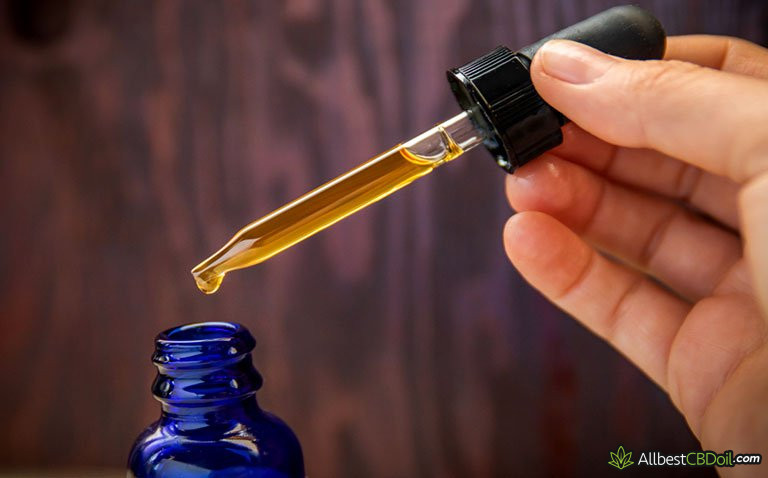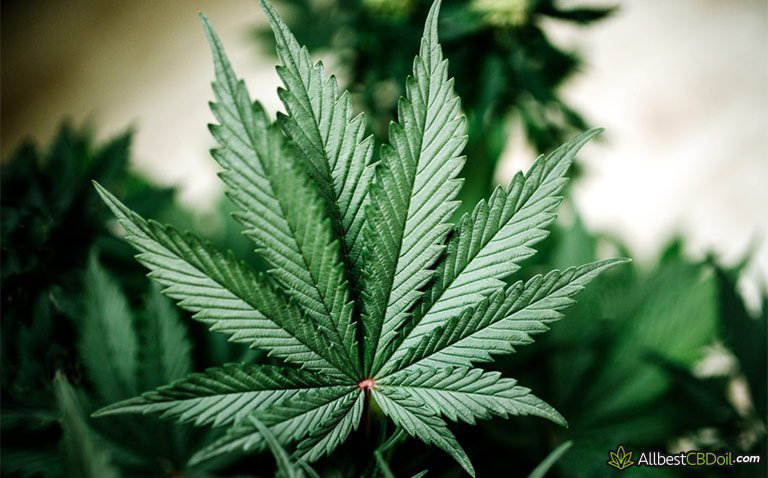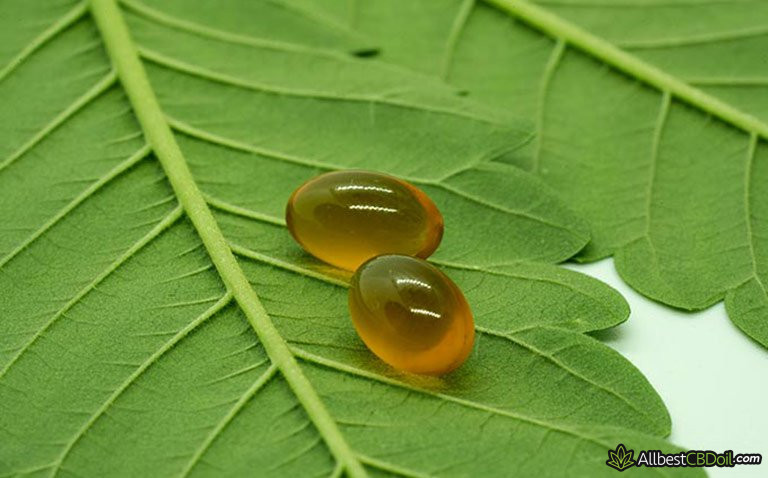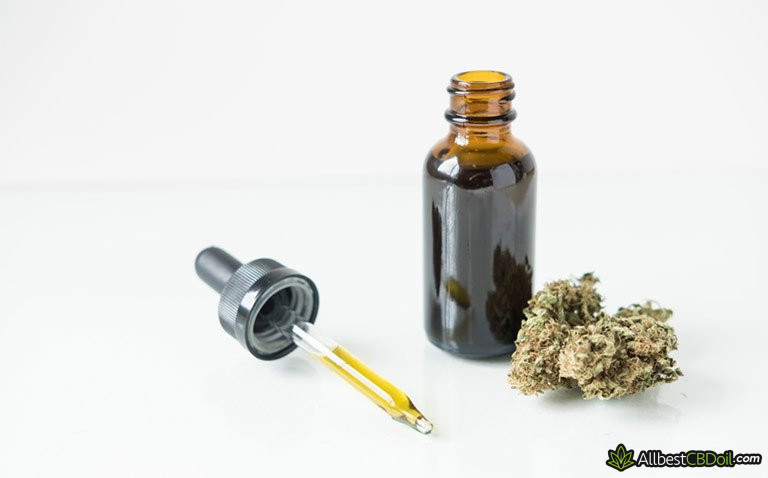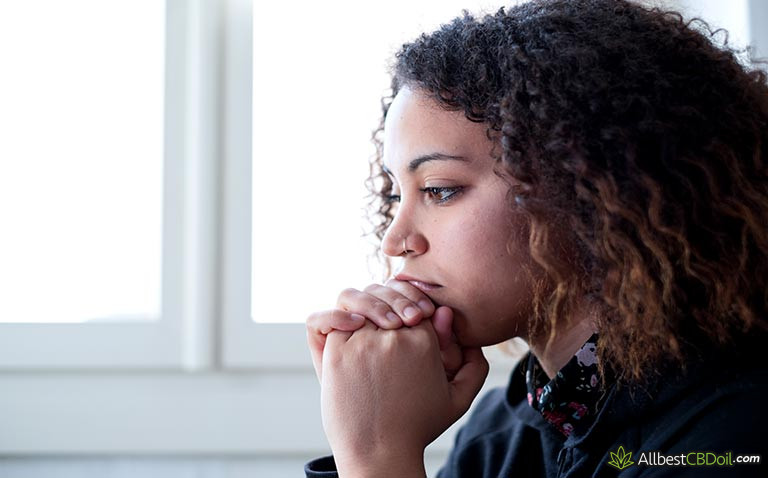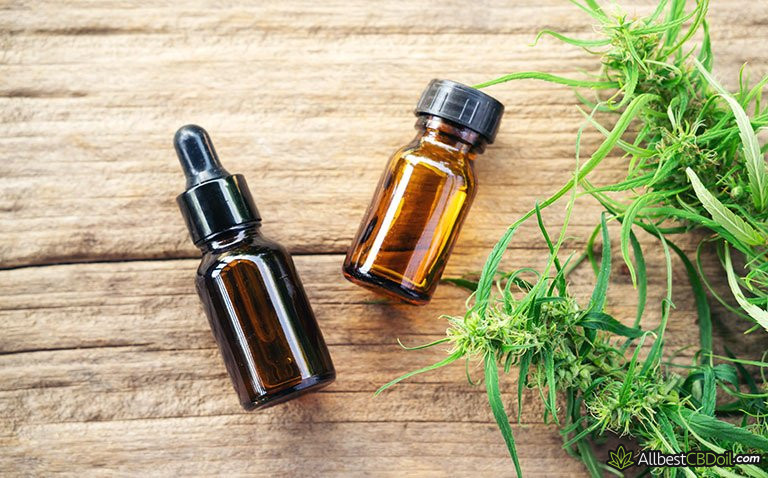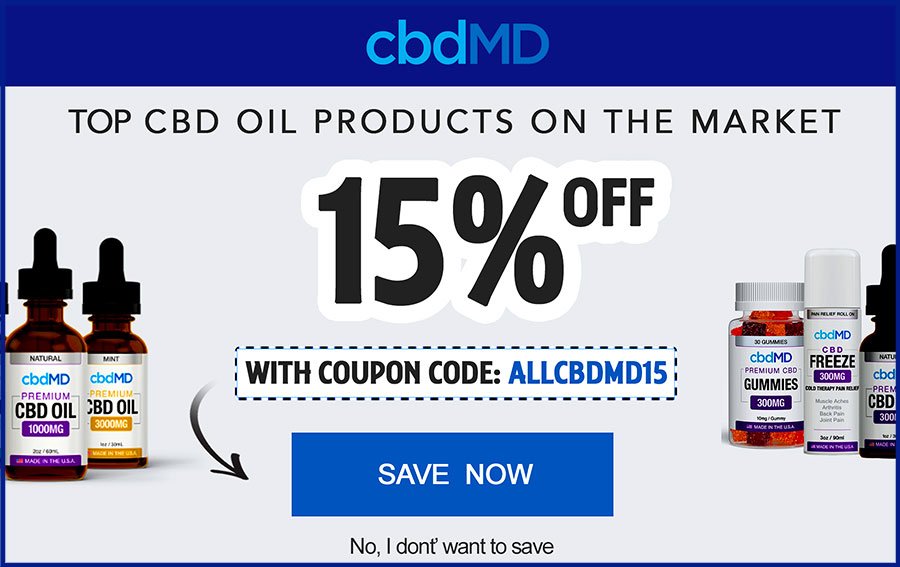
I was in this big family gathering recently and not to my surprise, the small talk turned to CBD oil...
Since I‘ve got 'a bit' of digging made into this 'cannabis oil thing', I was explaining to all the aunts and uncles what benefits you get from using it. My conservative uncle wasn’t sugarcoating and quickly spat out: “You’ll have a CBD overdose, that’s what you’ll have!”
The stigma of cannabis is still prevalent throughout the older generation. You can’t judge that - all their life cannabis was associated with one of the most illegal drugs. Only recently the Farm Bill Act was passed legalizing the use of Industrial hemp products throughout the country.
No wonder people are still thinking cannabis-derived CBD oil is a “dangerous substance” or a drug, with a potential of CBD overdose.
It is always hard to convince people if they already have their minds fixed. Luckily, my uncle was open enough to listen about what CBD is, can you take too much CBD oil, what does WHO (World Health Organisation) have to say about it and what are the worst side-effects of CBD overdose.
In this article, I’ll tackle the same questions that I’ve been explaining to my uncle. So, if you're ready, off we go...
Is it possible to overdose on CBD?
According to an investigation published by the National Institute of Health, “CBD is not risk-free. In animals, CBD AEs included developmental toxicity, embryo-fetal mortality, central nervous system inhibition, and neurotoxicity, hepatocellular injuries, spermatogenesis reduction, organ weight alterations, male reproductive system alterations, and hypotension, although at doses higher than recommended for human pharmacotherapies.” Yet, other studies report the safety of CBD use in humans with low potential for side effects. It is possible to take too much CBD oil, which may result in lethargy, diarrhea, drowsiness, and dizziness.
Table of Contents
What Is CBD?
CBD (cannabidiol) is a chemical compound found in the cannabis plant. There are more than one hundred similar compounds and all of them belong to a group called ‘phytocannabinoids’ (‘phyto’ meaning ‘plant’).
There are mainly two most well-known phytocannabinoids: CBD and THC. The latter one is psychoactive and therefore gives you the ‘high’ feeling when you smoke Marijuana joint or eat a cannabis-induced brownie, for example.
Now, both of them are present in the cannabis plant. The difference is in their ratio. Marijuana (or Cannabis Indica) has high levels of THC and lower levels of CBD, while Industrial hemp (or Cannabis Sativa) has high levels of CBD and very low levels of THC.
So, can you overdose on CBD when smoking too much weed? Not at all. You’ll most likely be overdosing on THC and will experience what is called a “bad trip”. Worth to mention that cannabis is considered a relatively safe substance with little-to-none lethal consequences.

Can there be too much CBD from hemp products then? Well, also no. CBD overdose at most will give you a few mild side-effects that pass quickly. Other than that CBD itself is absolutely safe to use.
WHO Recommendations
World Health Organization (WHO) has made an extensive study of CBD and prepared a report of its qualities, use, and safety.
Overall, CBD has no dependence potential, meaning you won’t develop an addiction to it as you would to many other kinds of drugs or alcohol, for example. There is also no risk for CBD abuse, or in other words, they have not indicated any potential to have CBD overdose.
Moreover, there has not been any public health problems associated with having too much CBD. As well as there is no evidence for CBD products’ recreational use. Simply put, CBD is not used for fun but mainly for increasing overall well-being and treating certain medical conditions.
As WHO confirms, CBD has been demonstrated as an effective treatment for epilepsy. Other than that, there is a growing number of scientific studies that prove its anti-inflammatory[1], calming[2] and pain-relieving[3] qualities.
In general, CBD is considered to be a well-tolerated substance with a good medical profile and hardly any severe side-effects. The potential for CBD overdose is practically zero and therefore more and more countries are making it legal to use for medical purposes.
Can You Overdose On CBD?
Over 70,000 people die each year in the U.S. due to drug overdose. Opioids being the major cause of those deaths. No wonder, there is a concern when starting any new medical substance.

While opioids are mainly used for increasing relaxation and mood, CBD is promising similar effects with practically zero chance of CBD overdose. That’s one of the reasons CBD oil is taking the U.S. market by storm.
Scientists only recently started to explore CBD potential. Since it is widely used for treating different medical conditions, naturally, they questioned: “can you overdose on CBD?”. But there is no scientific evidence proving its lethality.
Having said that, by no means should you drink gallons of CBD oil (it would be awfully expensive and disgusting). It’s still a medical substance and it’s always better to start slow.
The most what you could get is to have too much CBD and experience its side-effects of which we will take later in the article.
Marijuana-based CBD Oil Overdose
Some people do say that they’ve experienced a nasty CBD overdose. But can you take too much CBD oil? As I’ve said, it would require gallons of it within minutes, unless…

Unless it's a Marijuana-based CBD oil.
You see, Marijuana-based CBD oil has high levels of THC compound in it (Remember? The psychoactive ingredient that makes you ‘high’). And this one is way easier to overdose than CBD. But again, not lethally. It’s only that you’ll get more severe side-effects, like:
- Hallucinations
- Paranoia
- Panic attacks
- Confusion
- Increased heart rate
Pretty much the same as you would get smoking too much weed. Other than that, experts say that cannabis oil is really safe to use.
Latest CBDistillery Coupon Found:
30% Exclusive Discount
On All CBDistillery Products
You have an exclusive chance to save 30% on your CBDistillery order. Grab this limited-time promo code & enjoy top-rated CBD products!
What Is the Right Dose?
We already know that there’s no lethal CBD overdose, but it’s still wise to choose the right amount for you. The best way is to start with a low dose of 3 - 5 mg the first week. If you experience no change or benefit to your overall being, try adding the same amount each week.
Should you start feeling nauseous or any other side-effect, reduce by a little bit and there you’ll have the right amount for reaping the most benefit from CBD oil.
Of course, should you decide to use CBD oil for alleviating severe pain or other strong symptoms, you will need to start with higher doses.
Side-effects of CBD
Try eating five tablespoons of cinnamon at once. After that, you probably wouldn’t want to see it for at least five years to come.

You could have too much of practically anything in life if used excessively. That’s why many practical philosophers argued for moderate means.
Can you take too much CBD? Absolutely. The good news, you won’t die from it. But the side-effects could be pretty uncomfortable:
- Daytime sleepiness
- Fatigue
- Diarrhea
- Dizziness
Although, many studies on CBD side-effects point out that very likely there are other factors responsible for inducing those effects. For example, it may be a result of CBD interaction with patients existing medications or caused by impurities and contaminants in the CBD oil.
Bi-phasic Effects of CBD Oil
While there’s practically no severe CBD overdose, it does have a bi-phasic effect on your body.
What is bi-phasic you might ask?
There are two ways that CBD can work on you (hence the prefix ‘bi-’).
Significantly high or low doses have different effects on users. If taken in small doses, CBD generally has an energizing effect on them, whereas if taken in very high doses, its effect is more of a sedative.

Therefore, before using CBD, it is recommended to determine for what reasons you want to take it. If it’s only to improve your overall well-being then it is good to have it in small doses. Should you decide to use CBD for pain relief or treating certain inflammatory or another kind of illness, the doses are, of course, higher.
The effect is also dependent on the factors, such as body weight, metabolism, personal medical condition, and oil’s potency. Therefore, before using the new product, it is also advisable to consult with the doctor who has familiarized himself with the use of CBD.
Choosing the Right Brand
Since FDA (Food and Drug Administration) does not regulate CBD products, and as it moves into the mainstream, there is a growing number of unregulated producers who may be selling impure or falsely advertised CBD products.
For this reason, our team is dedicated to quality-check all the producers we work with and prepare in-depth reviews about their strengths and weaknesses for you to have a better understanding on each of them.
We always encourage newcomers to familiarize themselves with the product and the company they plan to purchase that CBD product from. It’s quite an investment and generally, it’s not recommended switching from brand to brand.

There are a few steps to make before deciding to have your first CBD oil:
- Familiarize yourself with the health benefits that CBD has and decide why would you need it. Maybe to increase overall mood and well-being? Or perhaps aiding in pain management, reducing inflammation or stress levels? It could also be used for better sleep.
- We generally recommend buying Full-spectrum CBD oil since it has a wider range of benefits. Though it contains THC and surpassing certain amounts of it can be illegal in some states. So, it is good to find out what are the laws on cannabis in your state.
- Buy from the big, trusted brands. Such as Charlotte's Web, Green Roads, NuLeaf Naturals, etc. And don’t forget to read the reviews. They may seem to sell the same product but there are slight differences between their products.
- Trustworthy companies have third party laboratories test their products and provide quality certifications. Always look for those.
- Consult with the experienced doctor on the personal dosages and do not be afraid to contact the brand’s customer support if you have some unclarities.
CBD oil is not a snack that you could lighthandedly buy anywhere on the Internet. It’s an investment that, if used correctly, could bring you many benefits and value. So, have your aces up the sleeve and take each company with a pinch of salt.
Conclusions
As I’ve told at the beginning of the article, my uncle was skeptical about all this new ‘CBD thing’. I’ve covered here the things that I’ve explained to him personally: what CBD is, can you overdose on CBD, what does World Health Organisation have to say about it and what are the worst side-effects of CBD overdose.

It showed me that there’s still a ‘bad drug’ label attached to cannabis and its products. There's also a need for more science-based information about CBD health benefits and safety.
So far, scientists have not indicated any potential health hazards of CBD. What is clear, that it is practically impossible to have a CBD overdose both intentionally or accidentally.
There are also no widely accepted dosage requirements or limits. It is generally recommended to start slow and gradually add up to a personal liking.
Some CBD side-effects are attributed to impurities found in the product. Since there is a huge variety of CBD oil producers, it is advisable to make a research before purchasing the product. Here comes our job to provide you with quality reviews about the leading companies in this industry.
That's it for this time. If you have any other doubts or questions, feel free to look through our other articles here.
Be smart, stay healthy and enjoy your new CBD experience.
Contributed By Diana Rangaves, PharmD
Dr. Diana Rangaves, Google Scholar, holds a Doctorate from the Univers...
Read Full Bio...Scientific References
Contributed by Diana Rangaves, PharmD
1. Prakash Nagarkatti, Rupal Pandey, Sadiye Amcaoglu Rieder et al.: 'Cannabinoids as novel anti-inflammatory drugs'
2. José A. Crippa, Francisco S. Guimarães, Alline C. Campos et al.: 'Translational Investigation of the Therapeutic Potential of Cannabidiol (CBD): Toward a New Age'
3. Sonja Vučković, Dragana Srebro, Katarina Savić Vujović et al.: 'Cannabinoids and Pain: New Insights From Old Molecules'
Leave your honest feedback review
Leave your genuine opinion & help thousands of people to choose the best cbd. All feedback, either positive or negative, are accepted as long as they’re honest. We do not publish biased feedback or spam. So if you want to share your experience, opinion or give advice - the scene is yours!


